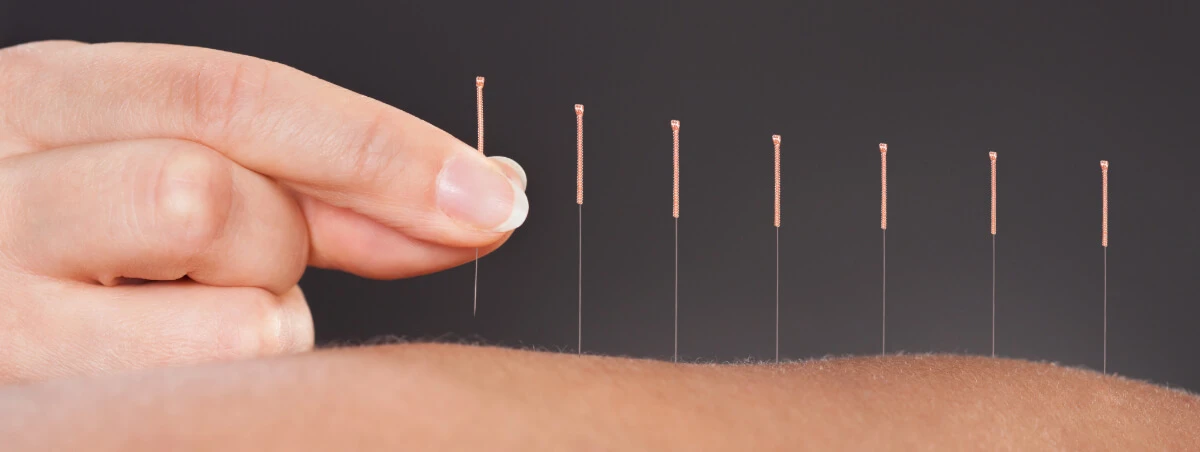As the last stage in the IVF process, you’re likely anxious to know what goes on behind the scenes in that two-week wait after your embryo transfer… ⏲️
is it possible to tell if your embryo has transferred?
Are there any symptoms of a successful embryo transfer?
And, is there anything you can do to encourage that positive result? 🤞
All your embryo-transfer questions — answered. 👇
In this article: 📝
- What is an embryo transfer?
- What are the positive symptoms of an embryo transfer?
- What can I do to increase my chances of embryo transfer success?
- What are the next steps after an embryo transfer?
What is an embryo transfer?
An embryo transfer is the final step in the IVF process.
It comes after ovarian stimulation (the first step), egg retrieval (second step), sperm retrieval and fertilization (third), and then, the last tick off the checklist is transferring the embryo.
This happens around 2 - 5 days after egg retrieval, and your doctor will transfer one (or more) fertilized embryos into your uterus.
What is the most critical time after embryo transfer?
The first 24 hours are considered the most critical.
It’s within this time frame than an embryo will attach itself to the uterine wall before it can fully implant, which takes a few days.
So, our advice?
Put your feet up, kick back, and relax on this day. 😌

What day should you test after an embryo transfer?
Your date to test will be told to you at your embryo transfer, so make a note of it in your diary. 📆
But, generally, your doctor will tell you to wait until it’s been around 16 days after your egg collection before you take a test. [1]
You’ll also likely be given a home pregnancy test, or asked to come back in for a blood pregnancy test to see if the embryo transfer has worked.
You should still hold off until this date before you test, even if you have any bleeding or spotting beforehand.
What are the positive symptoms of an embryo transfer?
So, the two-week wait is upon you…
It’s natural to feel anxious, and feel a little out of control in your own body.
So, what are the signs to watch out for to hopefully get that big, fat, positive? 🤞
Let’s break it down to what you can expect on each day…
Some of the earlier signs you might see from day 1 - day 9 include:
- 🩸 Light bleeding: It’s common to experience some light bleeding or spotting after an embryo transfer, as this could actually be implantation bleeding. This is when the embryo attaches itself to your uterine wall, resulting in a successful pregnancy, which can cause some light bleeding.
- 😮💨 Light cramping: Cramping or bloating is also common to feel but, annoyingly, that’s also a pretty common symptom of PMS. But this cramping may feel lighter, and like tingling, pulling, or pricking.
- 🥭 Sore breasts: Tender boobs… another common PMS symptom? But, actually, this could be a symptom of embryo transfer, too.
- 🤢 Nausea: A successful embryo transfer could also make you feel nauseous, too. Those pesky hormones flying around can cause some disruption!
But, as the pregnancy progresses from day 10 onwards, you might experience some more additional symptoms, such as:
- 🍔 Increased appetite: Oh, she hungryyyy… an increase in hormones in the body may have you creeping to the fridge for snacks more often than usual. 👀
- 💦 Thirst: Same story, but with good old H20. Hydrate up, mama-to-be!
- 🥲 Mood swings: Your emotions may also take a hit from the hormonal rollercoaster that’s going on in your body at this point… so if you’re feeling extra irritable, emotional, or generally just a bit all over the place, a successful embryo transfer may be at play, here.
- 🥱 Fatigue: And, here is when the tiredness would likely kick in… as hormonal and physical demands ramp up, your body starts to feel the strain. 💤

What if you have no symptoms after embryo transfer: is that normal?
Sometimes, there are very few warning signs you’re pregnant.
But, that doesn’t mean you aren’t.
It just means your body isn’t showing those telltale early pregnancy signs. 🤷♀️
In some cases, that may mean the embryo transfer has been unsuccessful.
But, a lot of women go without feeling certain symptoms, even sometimes weeks into their pregnancy… [2]
So, don’t put any pressure on yourself to be feeling all the feelz.
Just wait until your pre-organized testing date that you’ve discussed with your doctor, sit back, and let Mother Nature do her thing. 😌
What are the signs of a failed embryo transfer?
Sometimes, the absence of pregnancy signs could mean the embryo transfer has failed.
Also, if you get your period, this would be a key indicator that, sadly, you’re not pregnant.
But, the only surefire way to know is by taking a pregnancy test on your pre-scheduled date.
Hang on until then, as you might give yourself some unnecessary disappointment from testing too early.
How long after failed implantation will your period start?
In most cases, you’d likely get your period within a week after an IVF failure.
But, in some cases, this might be delayed due to hormone fluctuations.
Stress of the situation itself can cause a delay to your menstrual cycle, and if you’ve been taking any specific fertility treatment medication, that might also affect your period regularity. [3] [4]
Best bet?
Ask your doctor, as they’ll know your individual medical history, and what to expect after you’ve had IVF.
What can I do to increase my chances of embryo transfer success?
In the meantime, while you wait for the two-week timer to whittle its way down to zero, there are a few things you can do to keep yourself healthy, and give yourself the best chance possible for success:
- 🥦 Diet: It’s advised to eat a healthy, balanced diet with antioxidant-rich whole foods (such as broccoli, potatoes, berries), healthy fats (avocados, nuts, fish), and whole grains (rice, oats).
- 🚶♀️ Stay healthy: Maintaining a healthy body weight is important too, as well as following a healthy lifestyle. This includes keeping well hydrated, getting enough sleep, and doing moderate exercise to promote circulation.
- 😵💫 Reducing stress levels: Keep any stress at bay during this time. There’s some theories that stress can negatively impact implantation (the embryo attaching to the uterine walls), so try to relax, meditate, do some yoga… anything that chills you out. 😌 [5]
- 🪡 Acupuncture: Did you know, acupuncture might help to improve the outcome of IVF? By increasing the uterine blood flow, it increases receptivity to the transfer, and reduces any uterine contractions that might occur during the procedure. Pretty clever, right? [6]

What are the next steps after an embryo transfer?
Well, you’re pretty much all set!
Remember to keep on top of your health and nutrition, keep calm and try not to let those stress levels creep up, and wait until your designated day to test.
Need some support from mamas who’ve been through it before?
That’s exactly what Peanut is here for. ❤️
Join our Community, and enter into the conversation today.

